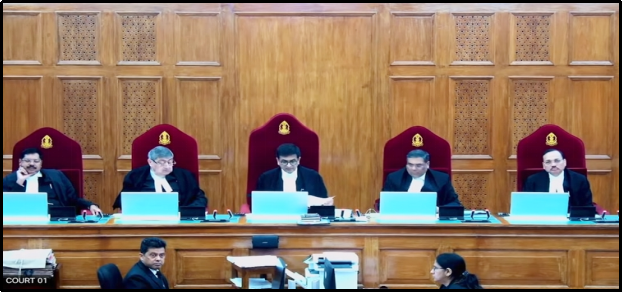Abrogation of Article 370 of Constitution valid: Supreme Court
News
- The Supreme Court has affirmed the legality of the Center’s decision to repeal Article 370 of the Indian Constitution, which gave the former state of Jammu and Kashmir special status.
- Earlier in 2019, the Center abolished Article 370 and divided the state into Jammu and Kashmir and Ladakh, two Union Territories.
- A number of petitions contesting the Center’s decision to repeal Article 370 four years ago prompted the five-judge Constitution bench, chaired by Chief Justice DY Chandrachud, to render a decision.
Judgement:
- Supreme Court ruled that there was no malice in the President’s order to revoke Article 370 because it was only intended to be a temporary measure for certain purposes.
- It ruled that Jammu and Kashmir lost its sovereignty when it became a part of India.
- The Supreme Court also clarified in the judgement that Jammu and Kashmir has no internal sovereignty that distinguishes it from other states.
| Article 370 of Indian Constitution
● The Indian Constitution included a clause known as Article 370 that gave the state of Jammu and Kashmir extra autonomy and rights. ● With the exception of foreign policy, defense, and communications, it gave the state permission to have its own constitution, flag, and degree of autonomy over most issues. ● In 2019, this article was repealed, removing Jammu and Kashmir’s special status and fully integrating it into the Indian Union. |




